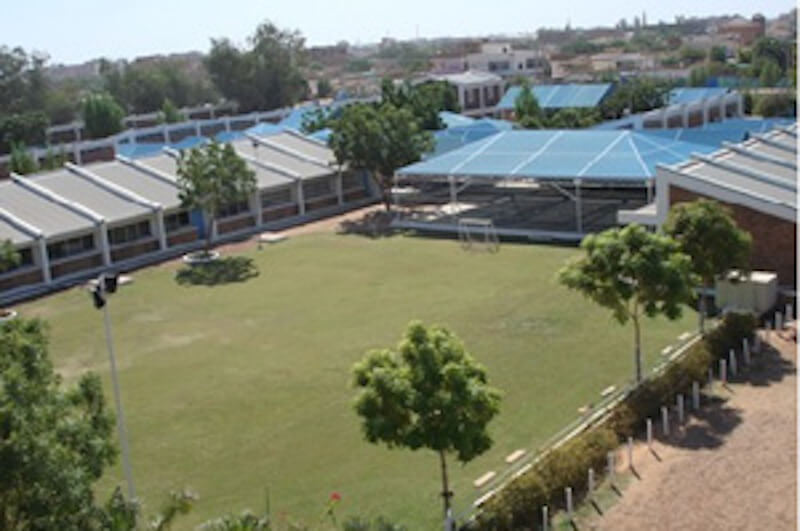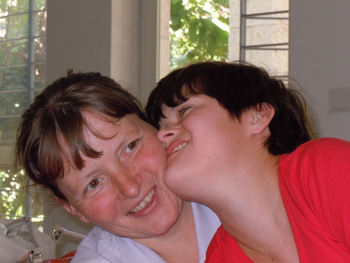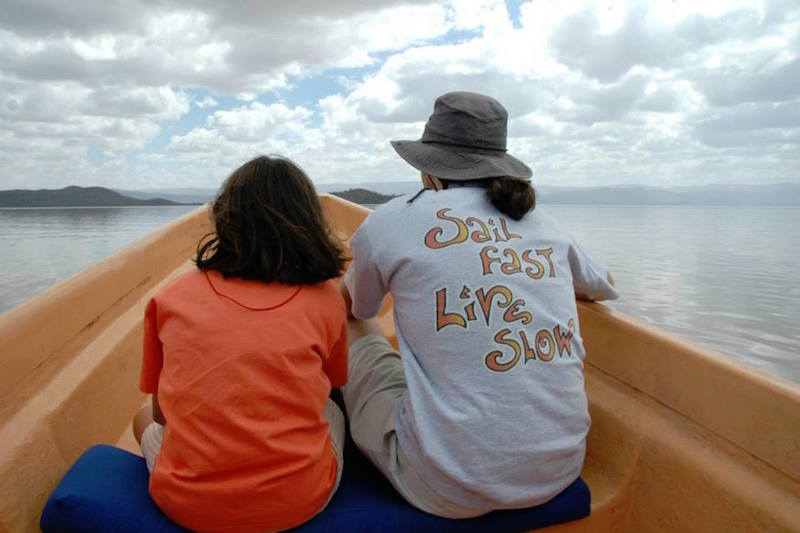
Lisa is Italian and she currently lives in Khartoum with her husband and her three daughters. For a while she was the psychologist of the Italian section of Expatclic.com, which she had to quit when her professional life had a positive development, and Lisa became a Special Needs Teacher at the American School of Khartoum, https://krtams.org/home/. In this interview she explains what the school does for children with special needs, and talks about Khartoum as a destination for families with CSN.
How did you get the idea of working with the American School of Khartoum?
A few months ago I started a private psychological consultancy with an Italian colleague. During the advertising process we took a leaflet to the American School of Khartoum. Then I forgot about it. One day I received an e-mail from the school. They asked me if I was interested in a position at the school. I went to see them and realized they were actually interviewing me! By the end of it, I was offered a position as Special Needs Teacher.
Can you explain us what exactly a Special Needs Teacher is, and what you do at the school?
All International and American schools have a Learning Centre consisting of a team of specialists (teachers, advisors, counsellors, etc.). A Special Needs Teacher is part of this team. Her task is to support the classroom teacher and take care of children with special needs. I have been assigned to a girl with a mental disability. I help her understand the lessons by simplifying the programme. I sit with her when she doesn’t understand, following her rhythms, etc. Obviously the kind of help a child requires will depend on the degree of his disability. My colleague has been assigned to a child that is completely paralysed, This means her work is much more physical because she has to carry him around the school, from one class to the other.
Do you also have expatchildren in your community of childrern with special needs?
There is an expatriate csn in primary school, the other cases are all Sudanese or from mixed couples.
I am thinking of the case of a csn family that has to move to Khartoum. The American School seems like the perfect choice because of the attention and support they seem to give to csn, but then you have the language problem – how about a French or Italian family, or of whatever other nationality, whose child does not speak/understand English?
In this case you have the ESC (English as Second Language) programme, in which some teachers work individually with the children that do not have English as their first language, and then go into the classroom with them to help them with vocabulary, etc., to bridge the gap between what is happening around them and their comprehension.
How do you find the attitude of the school towards these special children in particular?
They are certainly very careful in their relationship with parents, and absolutely respectful of cultural differences. I personally come from a country with long tradition in pedagogy. In the American system I sometimes feel that what is considered as new and innovative has actually already been experienced and tested in Italy. But their enthusiasm, team building capacity and passion are very genuine.
How do normally able children relate to csn in the classes?
It depends on their age. In my class (15-year-olds) there is no problem. The other students have perfectly integrated S., and they help her any way they can. I know that in a classroom with an autistic child there are some problems. But the school has a very clear policy about this. Bullying is strictly controlled. There is the Student of Concern group, which meets when there are difficult cases to be addressed. Besides this, the counsellor is continuously giving courses on a variety of topics, and working hard to reinforce positive attitudes.
Knowing that such a school exists in Khartoum must already constitute a big relief for parents of csn that are sent to Sudan. But how is life in general for csn in Khartoum?
In a certain way it can be easy or even easier than in Western countries. Children live a protected life. They have playgroups and meet at each other’s homes. Besides, you can have all the help you need: maids, baby-sitters. In general, the Sudanese hide their disabled population. You don’t see them in the streets of participating in social life. This does not necessarily interfere with expat csn, though. As I said, they can have a pretty well organized and protected life.
I know there’s a centre in Khartoum for autistic children, it was opened by a Sudanese nurse who did her training in England, and a Cheshire Home, (https://kchmiraclessudan.blogspot.com/).
And there is no problem as far as schools are concerned: I would suggest both the American (https://krtams.org/home/) and the International School (https://www.kics.sd/), they are both well structured for children with special needs.




